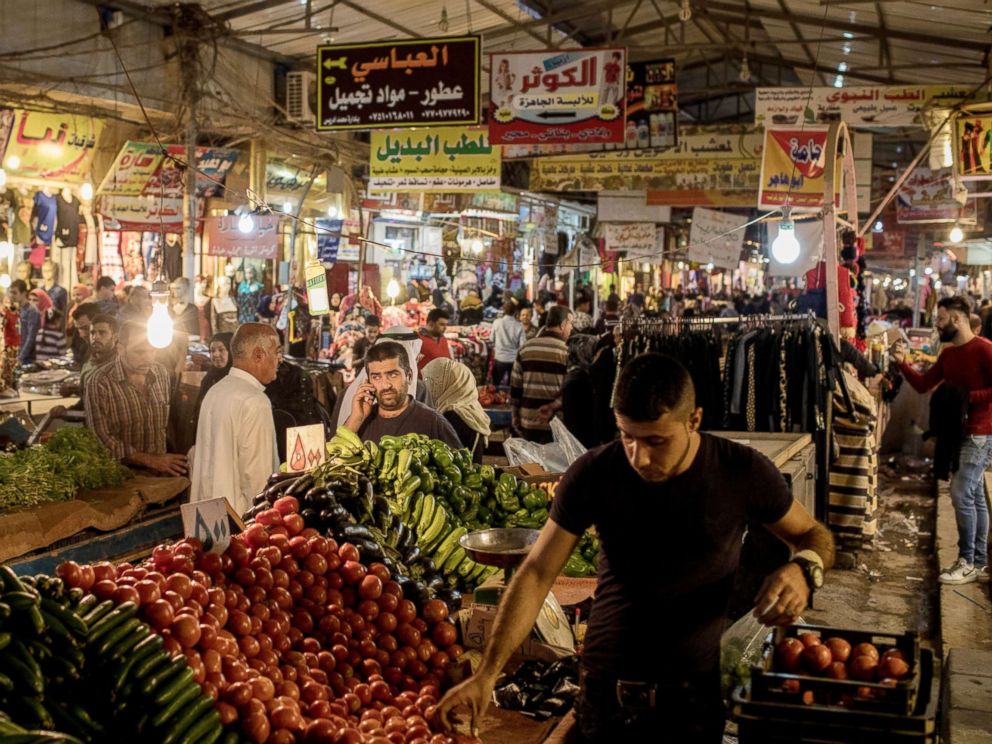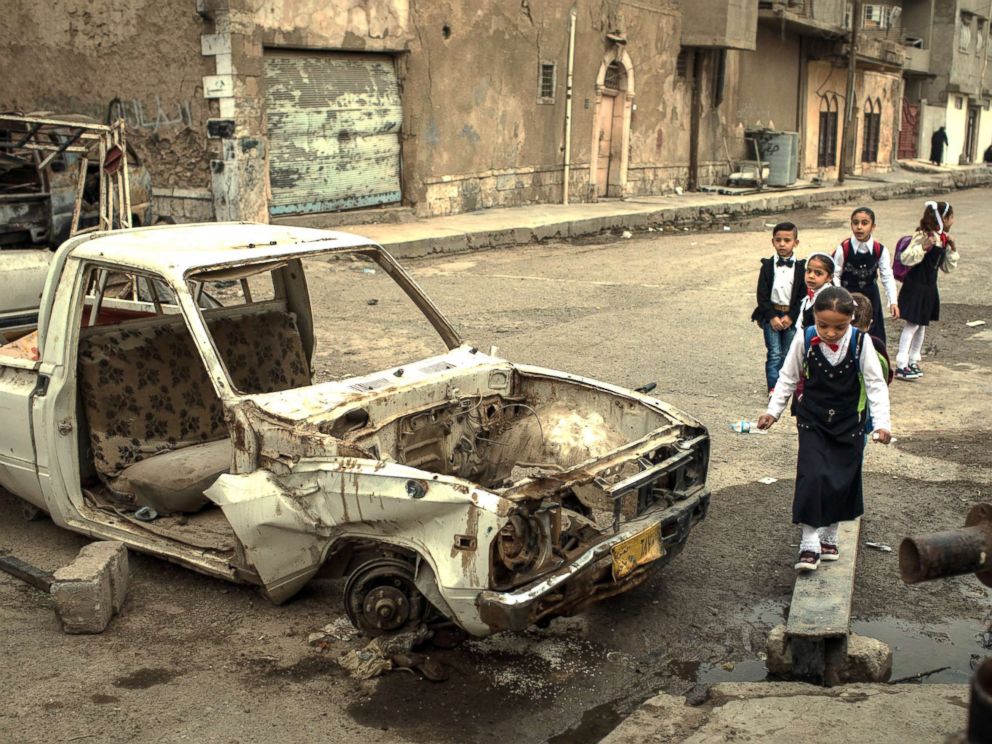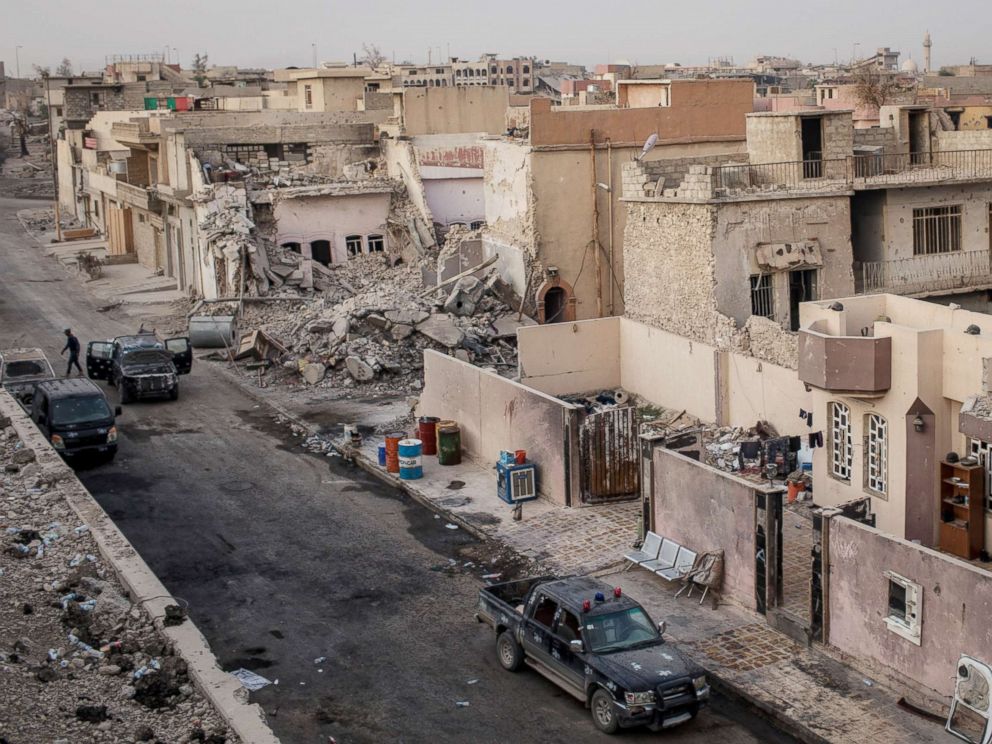The Evolving Middle East
"The responsibility to pay for reconstruction falls with the international community."
"[If Mosul is not rebuilt] it will result in the rebirth of terrorism."
Abdulsattar al-Habu, director, Mosul municipality and reconstruction adviser to Nineveh province
"We fought Daesh on behalf of the whole world."
"Now is the time for them [the international community] to stand with Mosul."
Amar Ismail Brahim, Mosul shop owner
"We haven't received a single dollar in reconstruction money from Baghdad."
"When we ask the government for money to rebuild, they said: 'Help yourself, go ask your friends in the Gulf' [fellow Sunnis]."
Ahmed Shaker, Anbar provincial council member
"Had they [ISIL] not been here, had they not conducted a completely brutal and inhumane campaign against the Iraqi people, this destruction would not have happened."
Douglas Silliman, U.S. Ambassador to Iraq
"[The U.S. had] a lot to answer for in the situation in Iraq."
"Say a year after the last city's been retaken from the IS, stabilization slowly peters out and then there's nothing. Who fills that vacuum?"
"If you like any of those options [new militants, Iran or Russia], don't do reconstruction."
German Ambassador Ekkehard Brose, co-chair, coalition working group on stabilizing Iraq
 |
| People shop at the Prophet Younis market in East Mosul on Nov. 5, 2017. Getty Images |
The result was that former Saddam military elite, unemployed and ignored, became leading members of Islamic State, dedicating themselves to the violent overthrow of Iraq's new government and that of Shiite-led Syria under Bashar al-Assad. Their viciously atrocity-ridden reputation and acts of barbaric slaughter made them feared and unopposed by either the Iraqi or Syrian military, enabled them to gain vast tracts of territory in both countries to claim as their caliphate.
Islamic State of Iraq and the Levant preyed on other Muslims in a sectarian war that left no prisoners, and catered to the primal urges of bloodthirsty psychopaths. ISIL cut a deadly swath through the ancient Yazidi population, threatened other ethnic and religious minorities, including the region's Christians and it was only the courageous dedication to justice and self-protection by the Kurdish militias that kept ISIL from gaining even more ground.
 |
| Children walk to school past destroyed cars in West Mosul on Nov. 6, 2017. Chris McGratty, Getty Images |
ISIL is now a spent force on the ground, though its influence continues to spur on its affiliates in the Philippines, Afghanistan, Pakistan, Nigeria, Somalia, Yemen, Algeria and elsewhere, along with inspiring groups and individuals in the West to conduct their own attacks to remind Europe and North America that it retains the power to attract would-be jihadis to inflict atrocities wherever they can.
In Iraq the need for reconstruction in the wake of routing ISIL has become a priority.
Cities that once had populations of millions, of hundreds of thousands now lie in ruins, houses bombed, municipal infrastructure from government offices to medical centres destroyed; no services available for those hoping to move back to their places of residence, anxious to leave the inadequate refugee camps which house them until they can move back. The U.S.-led aerial bombing missions to dislodge ISIL fighters, along with ISIL's own booby-trapped mines have destroyed huge tracts of municipal area leaving a vast debris area.
In the battle to retake Mosul an estimated 9,000 civilians died in the west of the city. "All I can think of is Dresden (WWII Allies bombing of the German city), or pictures I've seen of World War II", said Stephen Wood, senior analyst at DigitalGlobe, the satellite imagery firm. In Ramadi, capital of Iraq's Anbar province, over 70 percent of the city remains damaged, two years since being taken from ISIL. Close to 8,300 homes destroyed according to UN Habitat. Schools are out of commission.
On a street corner in Ramadi children are promised the equivalent of a U.S. dollar, (1,000 Iraqi dinars) for any family photograph or identification document they can retrieve from the ruins of apartment buildings. They clamber up collapsed buildings to pick through the rubble, looking for photographs or documents. Despite the ruination, most of the pre-ISIL population of 500,000 has returned to Ramadi reopening restaurants and shops, using savings, borrowing money to rebuild.
The stabilization program operated by the UN development agency (UNDP) rehabilitating infrastructure; roads, water, electricity systems, schools and homes has received $392-million in contributions, $115-million of it from the U.S. Washington has contributed $265-million to reconstruction since 2014, over the $1.7-billion in humanitarian assistance in Iraq, representing a fraction of the $14.3-billion spent by the U.S. fighting ISIL in Iraq and Syria.
The German government has provided $64-million to stabilization making it the second-largest donor, while the United Arab Emirates and Kuwait also have contributed, alone among Gulf nations; no others among the Arab states are listed as donors. Baghdad had anticipated that American funding would pour into its coffers after the ISIL defeat, but Secretary of State Rex Tillerson put a quick reality check on that expectation, informing Iraq that the U.S. is no longer in the business of "nation-building".
 |
| Federal police patrol beside destroyed buildings in West Mosul on Nov. 6, 2017. Chris McGratty, Getty Images |
After the 2003 removal of Saddam Hussein, it cost the U.S. $60-billion in a nine-year period in reconstruction in Iraq. But political dysfunction, and the appearance and rise of Islamist militias proceeded apace. It was recognized that roughly $8-billion of the American funding had been funnelled away in political corruption and mismanagement, outlined by the U.S. special inspector general for Iraq reconstruction.
Yet here is a typical situation where Muslim countries go to war with themselves, where sectarian animosities see total dysfunction, a collapse of civilized behaviour, as the passions of tribal and religious differences lead to bloodshed and the breakdown of civil order. When one country's government collapses, its neighbours look on with unease but there is no concerted collective action to ease such situations; instead the neighbourhood looks to the U.S. to intervene and bring order.
And then, the destruction to civil infrastructure, the millions of displaced people and refugees, the tens of thousands of deaths are handily attributed to the intervention of foreign forces, with a complete refusal on the part of the indigenous population to recognize, much less admit, the responsibility of their leaders and their own part in reverting to a state of cultural, religious and social barbarity slaughtering one another, while claiming it is the responsibility of those in the West to make amends.
Iraq and Syria are quite comfortable with the Islamic Republic of Iran, in whose political orbit they now spin. Both represent part of Iran's sought-for Shiite triangle, in its aspiration to change the political-sectarian aspect of the region to reflect its own expectation that it be recognized as the ultimate authority in a changing Middle East power structure. It is to Iran that they should turn for reconstruction funding.
And since Iran also represents terrorism writ large, the German ambassador's misdirected warning will be fulfilled regardless.
Labels: Conflict, Iraq, ISIL, Mosul, Reconstruction, United States

<< Home